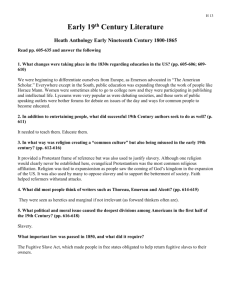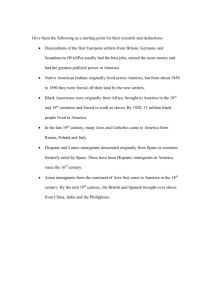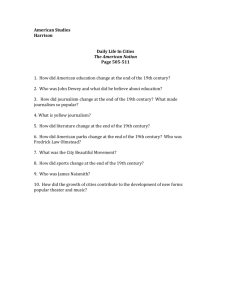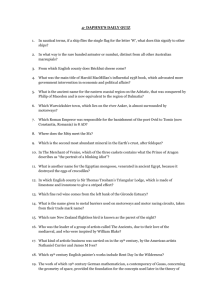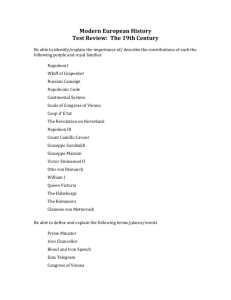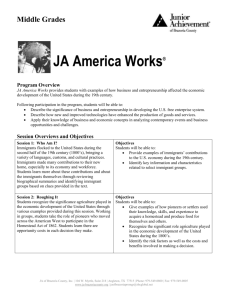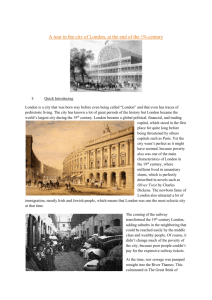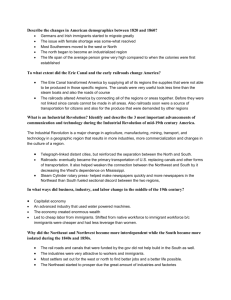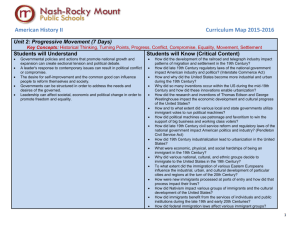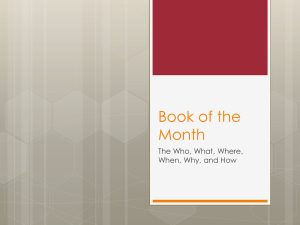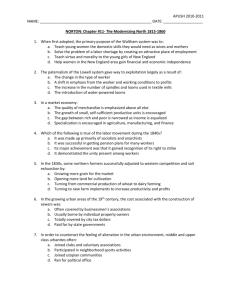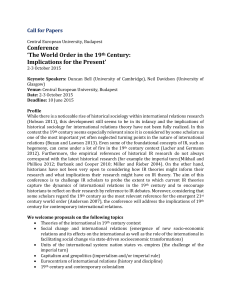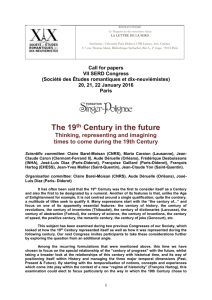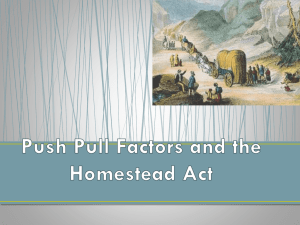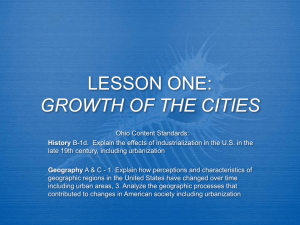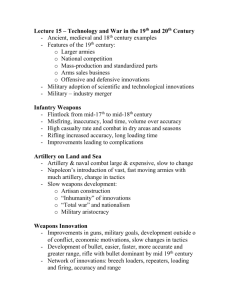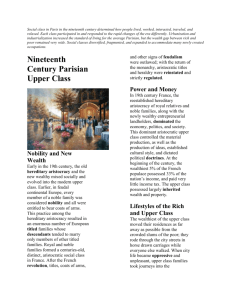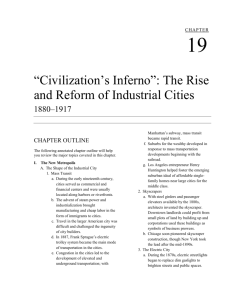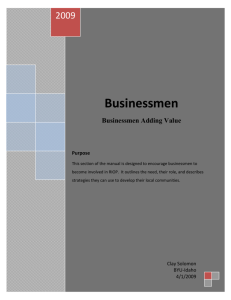Key Terms and People: “New West”, Homestead Act, railroad land
advertisement
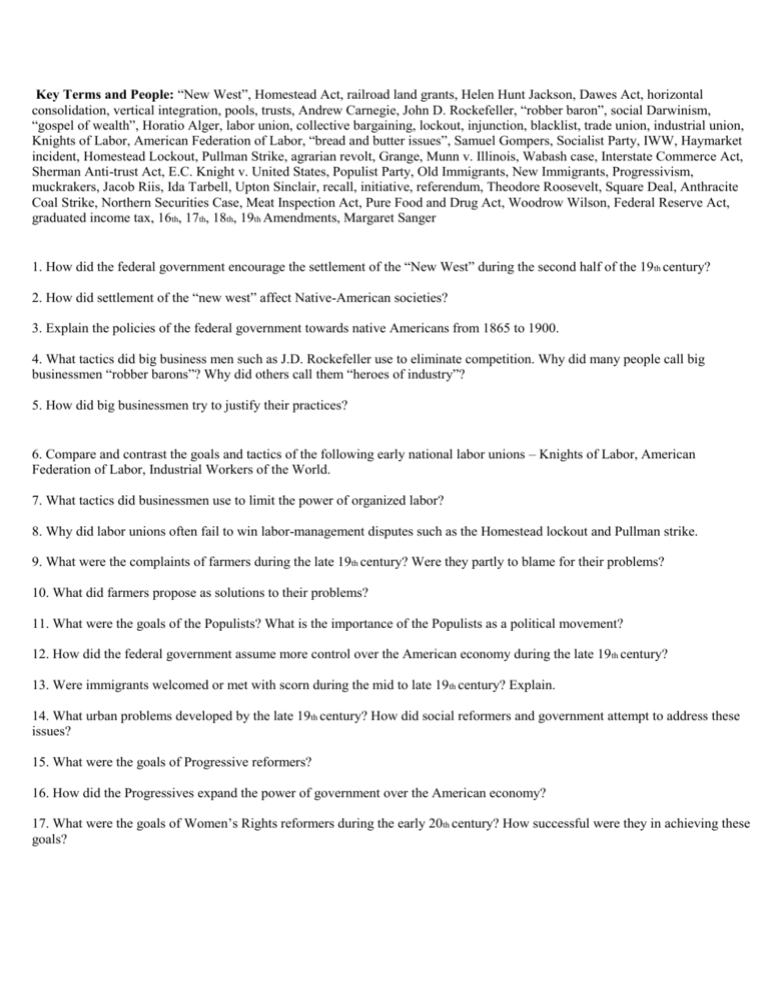
Key Terms and People: “New West”, Homestead Act, railroad land grants, Helen Hunt Jackson, Dawes Act, horizontal consolidation, vertical integration, pools, trusts, Andrew Carnegie, John D. Rockefeller, “robber baron”, social Darwinism, “gospel of wealth”, Horatio Alger, labor union, collective bargaining, lockout, injunction, blacklist, trade union, industrial union, Knights of Labor, American Federation of Labor, “bread and butter issues”, Samuel Gompers, Socialist Party, IWW, Haymarket incident, Homestead Lockout, Pullman Strike, agrarian revolt, Grange, Munn v. Illinois, Wabash case, Interstate Commerce Act, Sherman Anti-trust Act, E.C. Knight v. United States, Populist Party, Old Immigrants, New Immigrants, Progressivism, muckrakers, Jacob Riis, Ida Tarbell, Upton Sinclair, recall, initiative, referendum, Theodore Roosevelt, Square Deal, Anthracite Coal Strike, Northern Securities Case, Meat Inspection Act, Pure Food and Drug Act, Woodrow Wilson, Federal Reserve Act, graduated income tax, 16th, 17th, 18th, 19th Amendments, Margaret Sanger 1. How did the federal government encourage the settlement of the “New West” during the second half of the 19th century? 2. How did settlement of the “new west” affect Native-American societies? 3. Explain the policies of the federal government towards native Americans from 1865 to 1900. 4. What tactics did big business men such as J.D. Rockefeller use to eliminate competition. Why did many people call big businessmen “robber barons”? Why did others call them “heroes of industry”? 5. How did big businessmen try to justify their practices? 6. Compare and contrast the goals and tactics of the following early national labor unions – Knights of Labor, American Federation of Labor, Industrial Workers of the World. 7. What tactics did businessmen use to limit the power of organized labor? 8. Why did labor unions often fail to win labor-management disputes such as the Homestead lockout and Pullman strike. 9. What were the complaints of farmers during the late 19th century? Were they partly to blame for their problems? 10. What did farmers propose as solutions to their problems? 11. What were the goals of the Populists? What is the importance of the Populists as a political movement? 12. How did the federal government assume more control over the American economy during the late 19th century? 13. Were immigrants welcomed or met with scorn during the mid to late 19th century? Explain. 14. What urban problems developed by the late 19th century? How did social reformers and government attempt to address these issues? 15. What were the goals of Progressive reformers? 16. How did the Progressives expand the power of government over the American economy? 17. What were the goals of Women’s Rights reformers during the early 20th century? How successful were they in achieving these goals?
